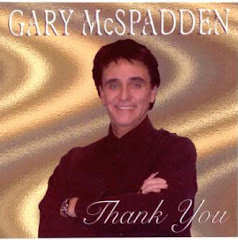Why Do Agents Turn Down Good Books? Part II
http://killzoneauthors.blogspot.com/2009/07/why-do-good-agents-turn-down-good-books.html
By
Anne Hawkins, Literary Agent
John Hawkins & Associates, Inc.
Anne Hawkins is an agent with John Hawkins & Associates, which was founded as Paul Reynolds Literary Agency in 1893, and makes it the first literary agency founded in America.
Anne is not only a highly respected, and beloved agent with a list of best-selling authors in her stable. She is a consummate professional with impeccable instincts, a devoted advocate for her authors, but she’s also a blind hoot. It is with great pleasure that I welcome Anne here as my guest on The Kill Zone.
EDITORIAL CONTACTS: To put it bluntly, if an agent doesn’t know the right editors for a book, she has no business representing it. From time to time, every agent reads a wonderful project that she has no clue how to place. Believe me, she’s doing the author a favor by declining.
Here’s why. As a general rule, an agent can submit a project to a particular publishing imprint once -- and only once. If the original editor declines, it’s very difficult to get another editor at that house to reconsider the book. Obviously, the key is to get the submission into the hands of the right editor the first time around, since you usually don’t get second chances.
SUITABILITY TO GENRE: Some kinds of books have specific conventions as to format, word count, style, content, etc. If a book strays too far, it may be unsalable – no matter how good it is. Of course, authors can cheat this unhappy fate by doing some homework on the particular requirements of their chosen genres.
Mixed genre books are another dicey situation, since an agent or publisher needs to feel that there is a definable market for a particular book. When an agent reads a book that is “kinda mystery, sorta horror, with strong romance and science fiction elements,” she’s going to wonder just who the audience might be. Projects like this have a history of falling through the cracks in the marketplace, so an agent will have to think long and hard about her chances of placing it.
LENGTH: A related subject is the matter of length, or word count. For adult fiction, most books range from around 70,000 to 130,000 words in length. There are exceptions of course, but very short or very long novels can be problematic to sell because of pricing, production, and distribution issues. In the case of books for children and young adults, the length must be appropriate for the targeted age group. There’s a bit more leeway for certain kinds of non-fiction, but even there inappropriate length can be a deal-breaker.
AUTHOR: Generally speaking, an agent takes on an author and his project because she is interested helping him build a long-term career. This is almost invariably true for fiction, where the name of the game is to increase readership over the course of many books. Agents may shy away from a novelist whom they believe to be a “one book wonder” because of the enormous investment of time and energy for only a single book. (This is not necessarily true in non-fiction, where one-off books, such as celebrity biographies, are more common and can be quite profitable.)
It goes without saying that if an agent has reason to suspect that an author might be the “client from hell,” she’ll have to carefully consider whether representation is worth the hassle. Then again, everybody’s different, and what’s poison to one agent may be ambrosia to another.
What To Do with Strange Experiences
3 days ago








That mixed genre issue is a biggie isn't it. I'm trying to be more true to a single genre in my current wip.
ReplyDelete